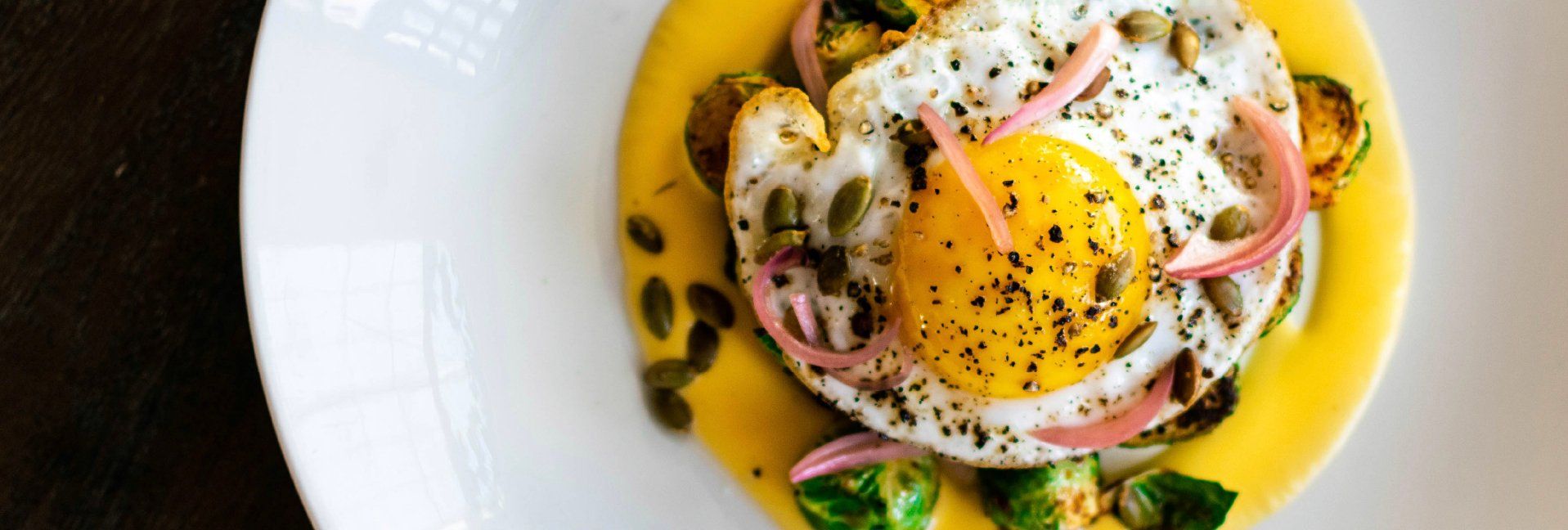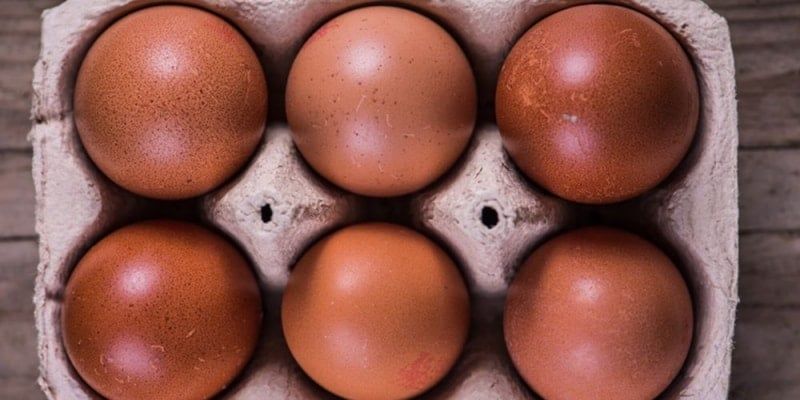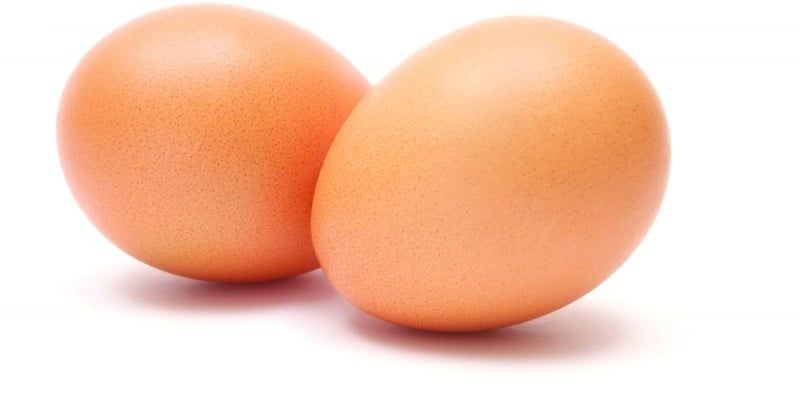Why Not Duck Eggs? When chefs covet duck eggs, you know they’re special


When people say “eggs,” they normally think of chicken eggs. But why not duck eggs? Duck eggs are more nutritionally dense than chicken eggs. Ducks can be as productive as chickens in egg production. Duck eggs have advantages in many types of baking and cooking.
Ducks are easy to raise and require minimal protection from the elements and disease. Some people that are allergic to chicken eggs can eat duck eggs. And…ducks are very entertaining in their antics!
Not your usual egg
So how else does a duck egg differ from a chicken egg? The first thing you will notice is the shell is much thicker. We use duck eggs only in our home and all our children knew how hard you had to hit a duck egg to crack it.
When my son went to his first 4-H cooking project class many years ago, he smashed a couple of chicken eggs on the stove before he learned you just had to tap a chicken egg
to break it
The membrane under the shell is also much thicker. The vast majority of duck eggs cracked by the duck or person collecting the eggs will not leak because of the strong shell membrane, making them easier to use in the home. Because duck eggs have less water in them, they cook faster when fried, so you have to use lower heat or less time to prevent the albumen from becoming rubbery.
One of the attributes of duck egg whites is they are more difficult to whip for a meringue—it takes much longer to whip. The advantage is that many chefs feel a whipped duck egg white is much better than a chicken egg white. My mother used a pinch of baking soda to make whipping easier; others use a little bit of lemon juice.
Interestingly, many people that are allergic to chicken eggs can eat duck eggs. And the opposite can happen, too, as our son-in-law can eat chicken eggs but not duck eggs. We ship many duck eggs to people with chicken egg allergies and they freeze the excess eggs by breaking them into a Ziplock-type bag before freezing.

Water, water everywhere
How different from chickens is it to care for ducks? The main difference between ducks and chickens is water. To a chicken, water is simply a nutrient. They drink it when they are thirsty.
Water is much, much more than a nutrient to a duck
Ducks will look for their favorite foods in it or mix dry food in it to make swallowing easier, they will swim in it to cool off, they mate in it, they will clean themselves with water, and yes, they drink lots of it, too.
If you aren’t careful, providing access to open water for your ducks can make a miserable mess. Splashed water onto dirt becomes mud, that mud goes back in the water and it becomes an unsightly brown. It is very natural for a duck but a cycle you must prevent.
You do not have to provide swimming or bathing water to your ducks 24/7. Just put a kiddie pool in their pen once a week for several hours and then empty it (outside their pen). Or if you have a pool, put at least eight feet of concrete or gravel around it to prevent mud. Tip: Include a 2”+ drain in the bottom of the pool for easier emptying and a float valve for easier filling.
If you just want to give them a bucket of water to wash their heads, make a floor of 1” welded wire or plastic flooring so any splashed water is not accessible to the ducks.
We use nipple waterers for the ducks and geese we raise. The advantage of these is there is no splash, all the water is clean, very little is wasted and the floors are much drier.
Food for thought
There are several differences in terms of feed between ducks and chickens. Ducks prefer a pellet or crumble—if you use a mash, much food is wasted as they take it to their water to help them swallow it.
Another difference is that young, fast-growing ducks need a higher level of niacin in their feed than chickens. Most prepared poultry feed has sufficient levels of niacin but it does not hurt to supplement with dried brewer’s yeast or human niacin supplements until eight weeks of age.
Another commonly held belief is that ducks cannot have medicated feed. Many years ago this was true, but research has shown that the commonly-used coccidiostat in poultry feed today (amprolium) does not harm ducks. It is much better to use a medicated starter feed for baby ducklings than to use an inappropriate grower or layer feed without medication.
A different, healthy habitat
Another big difference between ducks and chickens is the protection they need from the weather and disease. Ducks love the cold and will stay outside in the cold and snow much longer than chickens.
Ducks will often sleep in the snow instead of coming inside. What protects them is they have over twice the number of feathers as chickens.
And I am sure you realize that ducks love the rain. What you don’t want, however, is a muddy pen for ducks. They don’t like constant mud any more than chickens do. It is better to lock them in their coop during lengthy rainy periods than to allow them to turn their grassy run into a mud wasteland.
Ducks are also much more resistant to disease. Commercial chickens are vaccinated for a myriad of diseases—ducks, on the other hand, are rarely vaccinated.
Get to know some duck breeds
So now you want to try a few ducks so you can eat those wonderful eggs! What breed(s) should you choose? All ducks lay delicious eggs, so if you see a breed that appeals to you, go for it!
If you want a duck that is comparable to the White Leghorn chicken in terms of egg production, you need to try the Khaki Campbell, Golden 300 or White Layer ducks.
The Khaki Campbell was developed in the early 1900’s in England exclusively for egg production. It was further developed in Holland by Jensen Farms where their birds averaged 325 eggs produced in 365 days of lay. No individual breed comes close to the Khaki Campbell in egg production.
Our experience with the Khaki Campbell was that it was a nervous breed, it was not consistent in production from flock to flock, and the eggs were smaller than what we wanted.
So with the advice of breeder Dave Holderread, we developed the Golden 300 by crossing different breeds of ducks. What we ended up with was a strain that in most cases is less nervous than the Khaki Campbell, lays larger eggs (82 grams vs. 75 grams), seems to be very uniform between flocks in their egg production, and is very hardy due to its hybrid vigor.
We have many customers that tell us of their ducks laying year around…even through the winter when their chickens stop
Some of our customers wanted a white duck so we used the Golden 300 to produce a pure white duck that we call the White Layer. Both strains lay equal numbers of eggs—the only difference is that about 5% of the Golden 300 eggs are blue/green and the White Layer lays about 1-2% blue/green eggs.
Are you still not sure if you want to try raising some ducks for eggs? If we assume that 90% of the female ducklings that we have shipped in the past year (not counting those raised for meat or released into the wild) are grown to maturity and they lay the average number of eggs for each breed, these ducks will produce over 40,000,000 eggs in their first year of production! That is a lot of wonderful duck eggs others are eating! Don’t miss out - get your own ducks!
Breaking down the nutritional numbers
Duck eggs have more nutrients per ounce than chicken eggs. Duck eggs have 500% more Vitamin B12, 30% more Vitamin E, 150% more Niacin, over 100% more Iron, 60% more Potassium, 40% more Magnesium, etc.
And remember, these numbers are for equal amounts of egg.
Since a large chicken egg is about 2 ounces (56 grams) and an average duck egg is about 2.75 ounces (80 grams), you get even more nutrients per egg. This means that if you eat a duck egg instead of a chicken egg, you get over 700% more iron, 42% more Vitamin E, 200% more Niacin, 140% more Iron, and 85% more Potassium per egg.
Duck eggs also have more lipids in them, and this is what makes them so
rich. Chefs love them for baking, custards, creme brulee, mayonnaise—anything that benefits from a thick, rich egg. Interestingly, a duck egg has 15% more yolk than a comparably sized chicken egg. This extra yolk also provides more cholesterol, with duck eggs having twice that of chicken eggs. Duck eggs are also higher in the valuable Omega-3 fatty acids: 71.4 milligrams vs. 37 milligrams per chicken egg.
Tags:Excellent Eggs

Chicken Whisperer is part of the Catalyst Communications Network publication family.











